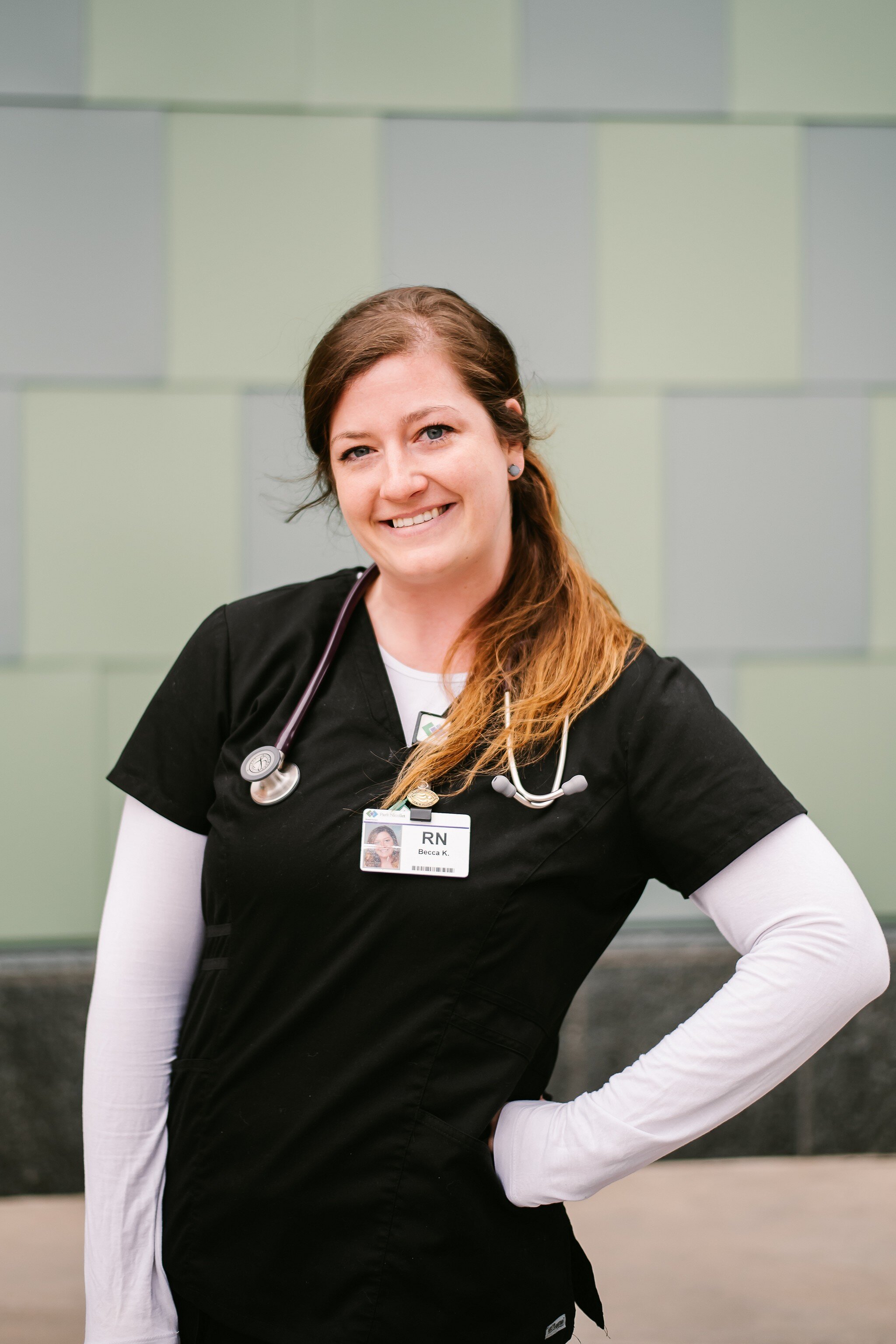History as it Happens: Snapshots of the essentials
Nathan Kennedy (Photo by Gabrielle McCullough)
Becca Kunz (Photo by Gabrielle McCullough)
Rick Glubke (Photo by Gabrielle McCullough)
The debate surrounding the definition of “essential worker” continues as Minnesotans wrestle with how to balance the physical health of our community with the economic health of the state and its residents. One photographer from Blaine has taken the conversation into her own hands, documenting the essential workers she sees.
Gabrielle McCullough, owner of Kennedy Jade Photography, recognized the historic nature of the COVID-19 pandemic several weeks ago. Capturing more than 20 images thus far, McCullough continues her search for the essential.
“When all of this began, I immediately knew I had to document it in some way,” McCullough said. “There are so many people who have the luxury to stay home and just as many essential workers out in the community, serving others and moving our world forward.”
One of the first people McCullough froze in time was her brother, Nathan Kennedy. A worker at Cub Foods in Champlin, Kennedy would tell his sister about the empty shelves, the lack of toilet paper and how people were stealing sanitizer from the back rooms.
“I initially reached out to him because I wanted to document the scene,” said McCullough. “When I got there, I quickly realized he was the one I needed to capture. Working every day, long days, stocking shelves, supporting his community, doing essential work so people can get the food and other household items they need.”
Kennedy works at Cub in addition to his full-time job in construction, making him essential in more than one way.
“I don’t take praise very well,” said Kennedy. “So it’s weird when people thank me for doing my job. There’s nothing special about what I do. However, on paper, it could be considered dangerous.”
McCullough looked around her neighborhood to see who still made the life she knew so well possible. Who kept the grocery store stocked? Who ran the post office? Who made sure the garbage didn’t pile up at the curb? Who delivered all those online purchases?
Rick Glubke happened to be the answer to her last question. A FedEx driver for 28 years, Glubke works as a swing driver, covering multiple routes depending on need. This could bring him through Anoka County, down to Minneapolis or out to the western suburbs — but always home to the neighborhood he shares with McCullough.
Armed with sanitizer, masks and gloves, Glubke said he keeps a safe distance from people, and the company wipes the trucks down each night.
“I don’t want to make people uncomfortable on my route who are in quarantine,” Glubke said. “People who have been exposed or know someone who was diagnosed. So far there hasn’t been any direct contact with an infected person.”
While Glubke said he doesn’t feel as essential as a nurse, firefighter or police officer, he does acknowledge his deliveries often consist of medical supplies, iPhones and toilet paper, which do feel essential to the households receiving them.
“I’ve learned to be prepared for the unexpected or anything out of the ordinary, to be flexible,”Glubke said. “There are rules to follow, but you must adapt as you go along.”
Another of McCullough’s neighbors, Becca Kunz, works at Methodist Hospital. Since her observation unit is closed as elective surgeries continue to be postponed, Kunz spends her shifts in a float pool setting.
“I’m fortunate to have done this (float pool) before, so I’m not too stressed out,” Kunz said. “But there is an adjustment period as to where things are and who the staff is, and what they’re doing. They’ve been super helpful — the team really makes the situation better.”
Kunz said now that they are protected 100% of the time with masks and face shields, she feels more comfortable at the hospital caring for her patients.
“I’m not going to lie — the first day I was really uneasy, and halfway through the shift everything changed,” Kunz said. “Now every day something changes as they continue to test and figure out new things.”
Kunz doesn’t bring anything home after her shift, walks straight into the shower, then backtracks and bleaches anything she touched, including the car door or other handles. After a month of the new routine, Kunz said she’s grown used to it, although the idea of continuing until a vaccine or other treatments are developed feels like a long time.
“Nobody wants to come near me,” Kunz said. “I feel like everyone who knows I’m a nurse thinks I am carrying the plague. I need to quarantine the whole time. I’d feel so bad if I got anyone sick after seeing people suffer from this virus.”
Being part of a close family adds to the tension of COVID-19, Kunz said. Her mother misses seeing Kunz and her sister, as well as the children, and Kunz said it is unnatural to not be together.
“I’m not going to have my normal life,” Kunz said. “The unknown is the scariest part. How this world shut down because of one virus that has no treatment. We miss the little things we took for granted. I never thought I’d be in this situation.”
McCullough plans to continue her documentation of essential workers as the pandemic continues and has agreed to donate the images to the Anoka County Historical Society for preservation as a thank you to the men and women working in essential industries.
Rebecca Ebnet-Desens is executive director of the Anoka County Historical Society. This piece is part of a series in partnership with the Anoka County Historical Society documenting aspects of the COVID-19 pandemic for future generations.



